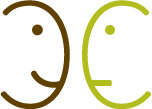Eastbourne Counselling Services
Contact us today
Dawn 07508 582 525
Linda 07395 076 589

Our Therapeutic Approaches
There are different ways that psychological therapies and counselling maybe able to help you through your problems. The basis of all types of therapy is the relationship between the client and the therapist. As therapists, our role is to listen and help you to unravel and understand what might be stopping you from moving on or enjoying your life to the full. We have provided some information below about the different types of therapy that we can offer.
Finding the ‘right’ therapist is important to get the best from the work that you do, so you may like to book an initial appointment to see how you feel and then decide if you wish to proceed, or try someone else. It is far better for us both to be open and honest about how we feel we can work together. In some cases it may be that we feel another professional may be best suited to your needs.
Different Therapeutic Approaches
Brief Psychodynamic Therapy
This focusses on unconscious processes as they are manifested in an individuals present behaviour. The goal of psychodynamic therapy is to build on a client’s self-awareness and enable an understanding of the way that the past can influence the present behaviour.
As a client, you will be be invited to talk about childhood relationships with parents and other significant people and the therapist will focus on the client/therapist relationship (the dynamics), in particular how you are projecting feelings and experiences. The therapist will then work with you on interpretations of transference, defense mechanisms, and current symptoms, and encourage you to identify ways to change the behaviour patterns that are currently causing concern.
Practitioners of brief psychodynamic therapy believe that some changes can happen through a more rapid process and that an initial short intervention will start an ongoing process of change that does not need the constant involvement of a therapist. A central concept in brief therapy is that there should be just one area of focus to work on.
Person-Centred Therapy
The person centred approach evolved from the work of Carl Rogers, and others, who identified that if an individual is given the right environment and 'conditions', then their instinctive impulse is to grow and reach their full potential. If there are negative or missing elements for the individual, such as being 'conditioned' to behave in a certain way, not having a voice that is heard, or living with abuse, lies or untruths, then this natural impulse is corrupted. This can then change either the way an individual lives, or quash the pleasure and enjoyment that they are able to get from their lives, and the lives of others.
When working with a person centred therapist, you will be encouraged to talk freely, and be fully heard. You take the lead in the work, bringing to each session what feels important to you. The therapist will challenge and be curious about what they hear and will encourage you to reflect on the meaning of your words, and how your words relate to your feelings. The therapist will not judge you and will not direct you as to what you should do, but will explore with you what you feel and how those feelings impact on you. This empowers you to identify what you would like to do in order to open up your life and move forward.
Cognitive Behavioural Therapy
CBT is based on the concept that the way we think about things impacts on how we feel emotionally. We can make changes in our life and think differently by challenging our thoughts and expectations, learning new behavioural and congnitive techniques and by finding new ways to cope. CBT regards behavioural acts as primary. It assumes that faulty, thought processess cause maladaptive behaviour and "negative" emotions. (Maladaptive behaviour is behaviour that is counter-productive or interferes with everyday living.) The treatment focuses on changing an individual's thoughts (cognitive patterns) in order to change their behaviour and emotional state.
Working with a CBT therapist involves you engaging in personal behavioural experiments. For many behaviourally based problems (such as phobias) there simply is no substitute for this way of working. Direct behavioural experience is often the most effective way to change. Actions, in this form of therapy, sometimes speaks far louder than words. Cognitive therapy focuses on present thinking, behaviour, and communication rather than on past experiences and is oriented towards problem solving.
Integrative counselling
This is when the therapist is able to offer several distinct models of counselling which are used together, to meet the needs of the client.